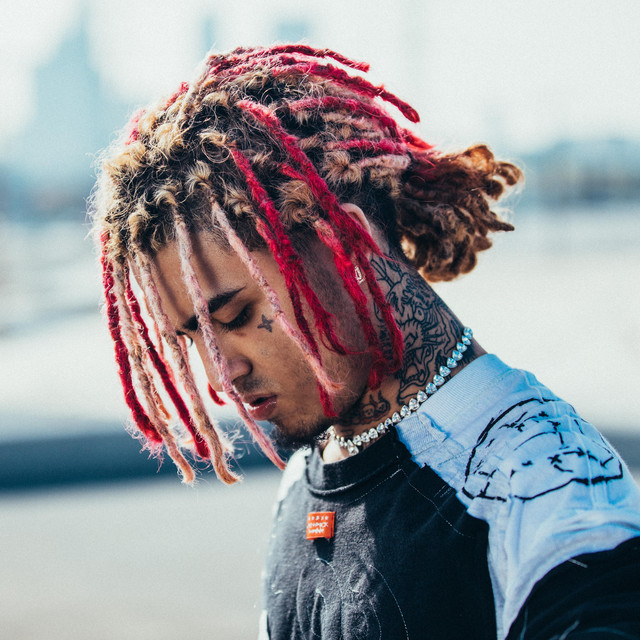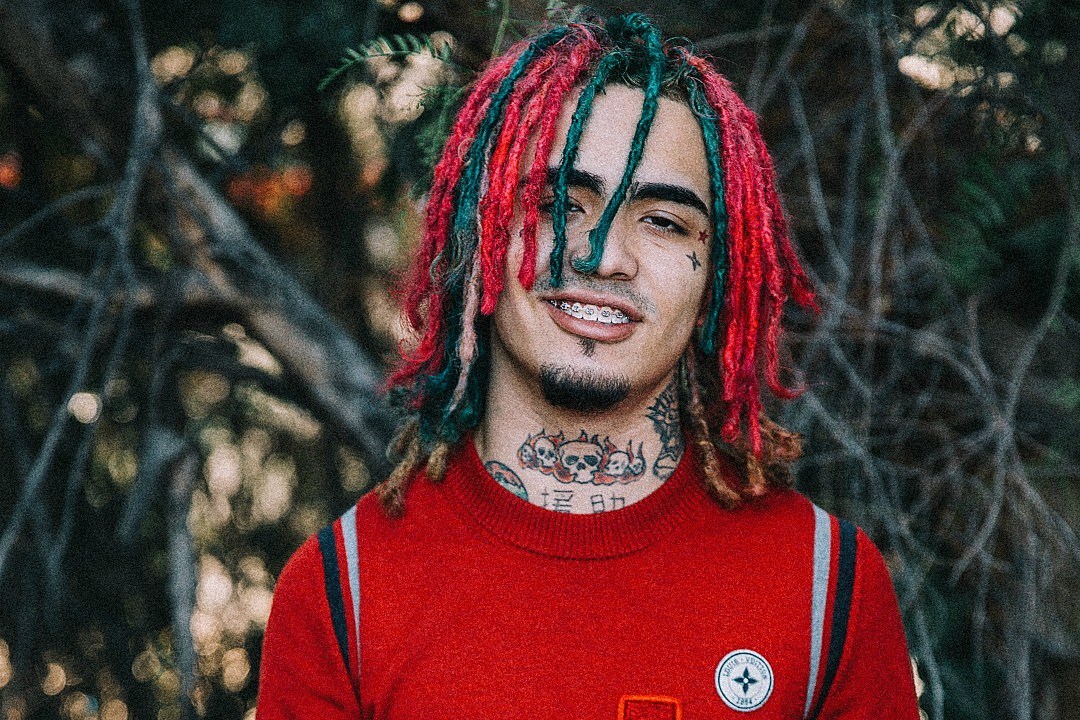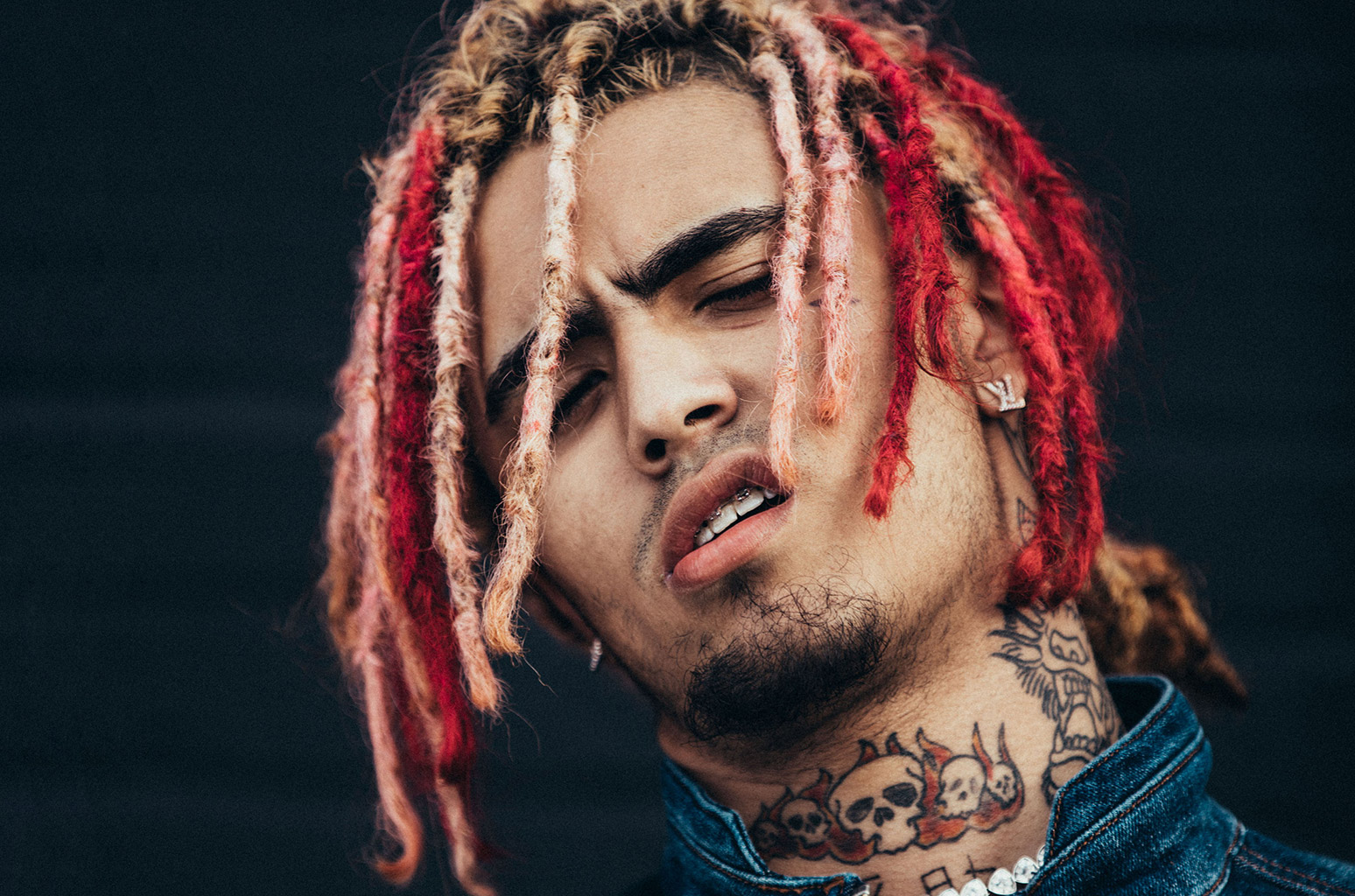Lil Pump Versus The Elderly: A Long and Storied History
/Letter From the Editor: The writer of this piece would like to apologize in advance for the abject stupidity contained within the following wall of text. If you’re brave enough to subject yourself to the mania that’s about to unfold, then you have my admiration, gratitude, respect, and appreciation. Thank you for understanding, and may God have mercy on your soul.
Pumpology 101: The Mystifying Origins of Gazzy Garcia
Lil Pump is a dreadlocked 17-year old rapper from Florida who first began making waves in late 2016 when his song “D Rose” became an unexpected viral hit. Over the span of a few short months, the wrist-obsessed track had garnered millions of plays on Soundcloud and over one hundred million curious YouTube clicks. By the end of 2017, Lil Pump (whose real name is Gazzy Garcia) had established himself as a mainstream success when his song “Gucci Gang” peaked at #3 on the Billboard charts. Spawning from his self-titled debut, the alliterative hit quickly became the focal point of a heated debate on the declining state of rap music rap music, the ongoing idocratization of popular culture, and the bare minimum required to pass for lyricism in the year of our Lord 2017.
Expertly covered by both Rolling Stone and The New York Times, Mr. Pump has become a figure at the forefront of the budding “Soundcloud Rap” movement. This subgenre is a spin-off of Trap that’s focused on crafting a particular brand of blown-out, vapid, and repetitive hip-hop that, while lyrically substanceless, still manages to be catchy, memorable, and (most importantly) energetic. It’s hype-up music that’s been distilled so many times that words practically don’t matter.
I’ve already discussed my conflicted feelings on the genre back in August, and while some members of this scene are still objectively-horrific human beings, I’m willing to admit that I’ve come around to Lil Pump thanks to the catchiness of the aforementioned “Gucci Gang.” While the man himself should never be looked up to as an idol, Garcia is still making exciting creations within a field that I’m morbidly fascinated by.
The Lyrics (or Lack Thereof)
Like most rappers, Pump’s songs typically center around the same award-winning trifecta of drugs, money, and women. What makes “Gucci Gang” unique is the fact that it ticks all these boxes while also managing to be accessible to a mainstream audience. Soundcloud Rap’s previous biggest success came in the form of “Look At Me!,” a song whose lyrics are probably just a touch too edgy for mainstream audiences.
Meanwhile “Gucci Gang” has just the right mix of garish colors and catchy lyrics, both of which are accompanied by a distinct feeling of “newness” that helped it stand out from the crowd. Additionally, the song’s bouncy three-syllable chorus proved perfectlymemeable, ripe for parody, and endlessly reworkable, all of which led to a song that hit, and lingered in the cultural consciousness for longer than anyone ever expected. Possibly even a reflection of our society at large, “Gucci Gang” is an undeniable success no matter how you cut it.
Outside of the song itself, Lilliam Pumpernickel has also gained fans through numerous extra-musicalantics including second-floor balcony jumps, a love for iCarly’s Miranda Cosgrove, and a running joke that he’s a Harvard Graduate. Essentially, he’s not afraid to be a meme, and that lack of fear makes him even stronger. Complete with his own catchphrase, there are many reasons to be entertained by Lil Pump, and all of these elements combined help explain his meteoric rise to success.
The Emergence of an Astronomical Happening
Though my numerous listens to “Gucci Gang,” I began to approach the song the same way that many others did: first with curiosity, then ironic enjoyment, then genuine adoration. I can’t stress enough that the lyrics are nothing to write home about, however one stanza in particular stands out amongst the rest like a bright, shining star:
My lean cost more than your rent, ooh (it do)
Your momma still live in a tent, yuh (brr)
Still slangin’ dope in the ‘jects, huh? (yeah)
Me and my grandma take meds, ooh (huh?)
These bars initially seemed like a single metaphysical barb amongst a sea of relatively-straightforward brags and boasts, so I explained them away as a one-off lyric with no deeper significance. Unbeknownst to me at the time, this line was just the tip of the iceberg.
By the time December had rolled around, “Gucci Gang” had won the honor(?) of being recognized not once, but twice in Swim Into The Sound’s 2017 Un-Awards. While part of a largely-negative post, I shined a relatively-positive light on “Gucci Gang” as my second-biggest “WTF” moment of the year (second only to Bhad Bhabie) in which I found myself surprisingly endeared to both equally-trashy artists. Later on in the proceedings, I cited the lyrics above specifically as the single “Weirdest Flex” of 2017 (barely edging out a Drake lyric about napping).
In researching the Pump-penned lines for that write-up I found myself jumping between various Genius pages and in doing so, I quickly began to uncover a conspiracy deep as the Carly Rae Jepsen Cinematic Universe: Lil Pump has an unshakable fixation with the elderly.
The Quest For A Universal Truth
It’s no secret that artists tend to use the same concepts, thoughts, and ideas over and over again throughout their work. Usually in hip-hop, these recurring topics (like drugs, money, and women for instance) are framed by using twists on conventional language that are given new meanings within the scene’s culture. From “bricks” to “bands” to “bitches” every possible theme has dozens of different synonyms that can be switched out interchangeably to keep the rhyme fresh and the topic from going stale.
However, slang goes in and out of popular vernacular like the tides of the ocean, and Monsieur Pump is not above these familiar tropes. While drugs, money, and women remain the primary topics around which Pump waves his tales, he, on more than one occasion, has used his grandma, or the grandmother of the listener as a reference point for these interests.
Of course he likes lean, and naturally, he talks about it, but what makes Pump unique is his ability to relate that commonplace idea to the elderly in a hilarious and unexpected way. He’s using age as a barometer by which to measure his own life; the elderly representing an extreme through which he can cover these well-trodden topics.
It’s quite the signature flair for a 17-year-old to brandish, but perhaps through these lines he’s revealing his own obsession with death and mortality. Maybe these grandparent-based lyrics are allowing us a brief peek into the inner machinations of Lil Pump’s mind and we are learning what troubles him on a deep, cosmic, existential level. The philosophical reaper that keeps him up at night. These lines act as an illumination of the human experience as told through the grounded eyes of one man who yells “ESKETIT” like it’s his Pokemon name. What follows is a comprehensive list of every time Little Pump has rapped about senior citizens. You are welcome.
Exhibit #1 - “Gucci Gang”
My lean cost more than your rent, ooh (it do)
Your momma still live in a tent, yuh (brr)
Still slangin’ dope in the 'jects, huh? (yeah)
For the sake of completeness, we’ll begin with lyrics that started it all. The quote above comprises exactly 25% of the sole verse found on Lil Pump’s breakout hit “Gucci Gang.” In it we find Pump surveying his surroundings, living situation, and pattern of systematic drug use over a bassy beat and twinkling piano line.
First, we get the worrying comparison between the upkeep of his own opiate addiction to monthly rent, then the (uncalled for) implication that the listener’s mother is homeless, and the final cherry on top: the fact that Pump spends quality time popping pills with his grandmother. While the specifics remain vague here, it’s implied that he’s taking drugs recreationally while she is taking them for health reasons.
This being one of Pump’s numerous references to the elderly, the topic’s pervasiveness now leads me to believe that this is both a genuine lyric, as well as a thinly-veiled cry for help. As distressing as the lyric may be, at least he’s spending some quality time with his elders before they pass. Even if it’s a drug-fueled haze, I hope that both parties treasure their remaining time together and cherish each other’s company.
Exhibit #2 - “Fiji”
I got Fiji on my neck
I got Gucci on my chest
Off a Xan like Ron Artes
In this one-off Lil Pump loosie, Young Gazzy uses the artesian water brand as a descriptor for both his jewelry and his sex life. Following a similar structure as “Gucci Gang,” this track features a brief intro, and one verse sandwiched between two short choruses. Clocking in at a mere 88-seconds, “Fiji” is a striking minimalist creation that embraces reductionism and revels in ambiguity.
Within the world of hip-hop, “Water” can actually mean many things. From sex to swagger, the use of ‘water’ in-song is generally something you have to pick up from context clues, and this track is no different. In “Fiji” Pump walks a beautifully-ambiguous line between these typical definitions of earthly possessions and literal water, turning the brand’s name into a primal chant of “I pour Fiji on her neck.”
After a brief water-laced refrain, Pump proceeds into the meat of the song: a 45-word verse that discusses his public persona and ticks all of the seemingly-mandatory drug-based name-drops. He has jewelry on his neck, a Gucci logo tattooed on his chest, and most importantly the incongruous mention of his grandmother casually enjoying some hitech (aka Lean).
Perhaps elaborating on the lines of “Gucci Gang,” this lyric implies that maybe he and his grandmother both enjoy drugs on the same recreational level. Later on in the song he continues:
Slice your auntie in the neck
Lil Pump disrespect
Run up on you with that 40
Grab your grandma by the neck
After the verses earlier drug revelry, Pump seems to “set his sights” on the listener, attacking us via multiple familial ties. In a single moment of clarity he utters “Lil Pump disrespect” as if he knows what he’s doing is morally reprehensible, but remains out of his control. A haunting sentiment to say the least.
His hunger is insatiable, and your grandmother is his target. Violence is the only thing he understands, and your grandmother is the only thing he can grasp onto, both physically and metaphorically. And then, just as suddenly as the attack unfolded, the song fades into nothing, leaving the listener in the bloody aftermath.
Exhibit #3 - “Smoke My Dope”
Whippin’ up dope in the trap spot (what)
Sellin’ cocaine to your grandma (yuh)
Whippin’ up dope in the trap spot (yuh, yuh)
Sellin’ cocaine to your grandma (yuh, yuh, yuh, yuh)
In this early-album cut Lil Pump and fellow Florida rapper SmokePurpp trade verses for a compact and chaotic 2-minutes. In Garcia’s second verse he exerts himself enough to present one specific instance of creating and selling drugs over a series of escalating “yuh’s.”
In this simplistic portrayal of Pump’s supply chain, he gives his process away to the listener:
Whip up an indeterminate amount of “dope” within the “trap”
Proceed to sell that cocaine to the listener’s grandmother
Perhaps connected to the seemingly-uncalled-for violence depicted on “Fiji,” these lines seem to explain how Pump has obtained his wealth. I imagine that the elderly are comparatively easy-going when it comes to the purchase and intake of drugs, so it’s presumably easy money for Pump and a decent enough business model. Backed up by voracious twitter claims that echo the song’s lyrics, Pump has given us no reason to doubt him or his business acumen when it comes to selling the white stuff to the Greatest Generation.
Exhibit #4 - “Had”
My loud pack smell like fish tank
My backwoods filled with dumb stank
I can’t fuck with you, cause I know all you ni**as stains
My grandma selling loud pack and she selling cocaine
She run up on your block and she’ll shoot you in the fuckin’ brain
With “Had” it seems that there’s a new wrinkle to Pump’s drug operation as it’s revealed that he’s running a family business by employing his grandmother as a key player.
Depicting his bubbe as savage and violent as himself, this example could possibly explain Pump’s own outwardly-destructive actions as a learned behavior. In portraying a systematic issue within our society, this line directly tackles how family can fail us, or lead us to repeat the same mistakes as those that came before us. It’s a tortured and agonized call for help as Pump removes himself enough to realize the trauma that he has indirectly absorbed and the conditions that he has had no choice but to grow up in.
This all said, it’s still nice that people like Pump’s grandmother can find purpose in the fast-paced working world and be driven by the fulfillment of a hard days work. The fact that she’s willing to kill on top of the drug dealing means that she’s committed to the cause, and is likely quite experienced, even in her old age. At the very least, Pump must come from good genes!
Exhibit #5 - “At The Door”
I got junkies at the door
I could serve you 2 for 4
I could serve you couple Xans
I could feed your bitch some coke
Yeah my Uzi automatic
On this mid-album cut, we see yet another allusion to the violence that Pump has inflicted upon the listener’s grandmother specifically. Perhaps wielded by Pump himself, or maybe even his grandmother (as we saw in “Had), it appears as if the drug dealing illustrated on “Smoke my Dope” has gone sideways for one reason or another, and Pump has been forced to resort to violence.
This line is actually one of the multiple familial references within this verse, the others being father, daughter, and aunt, so while this reference fits squarely in the bounds of the topic at hand, there’s no getting around the persistently-elderly angle that Pump takes.
This is yet another line later echoed in a Tweet by Pump, either lending further credence to his unfeeling savagery, or (perhaps) his commitment to our society’s collective physical fitness by inspiring the elderly to do advanced-level gymnastics.
In Conclusion
None of this was good. While Pump’s initial references to the elderly seemed to be a twisted form of mutual enjoyment, things quickly devolved into selling drugs, and eventually inflicting violence directly on the listener’s grandmother.
This analysis is absolute stupidity, but I find it too amusing that a 17-year-old who has so few songs officially released has referenced the elderly half a dozen times throughout the history of his recorded work. The way I see it, there are a few explanations for this lyrical ouroboros:
It’s a creative crutch.
Lil Pump has that little to say that he keeps defaulting to “grandma.”
Deep-seated familial trauma in his own past that Pump may or may not be cognizant of.
Pump thinks that the savagery of his grandma implies, dictates, and directly translates to his own.
By “attacking” the listener and showing disregard for their loved ones, his devil-may-care attitude is preemptively deflecting any criticism they may have of Pump or his music.
Lil Pump truly does fear the uncertainty of death and projects that concern through the multiple references to the elderly in his music.
It very well could be all or any combination of all of these, but in any case, I feel it’s safe to say that this qualifies as an unhealthy fixation. Whether it’s a profound fear of death, a thinly-veiled attempt to address his own mortality, or irreconcilable childhood trauma, I genuinely hope that Gazzy Garcia can get the help he needs to get over this mental block.
He’s still got many years ahead of him, and a full life to live. If he wants to make it to the status of “Grandpa Pump” he’ll have to overcome this irrational fear and tackle his issues head-on, or else they will continue to emerge in unhealthy ways.
Here’s to you Mr. Pump, I hope you get the help you need and deserve.
I’m sorry for writing this.
The face of regret.
















